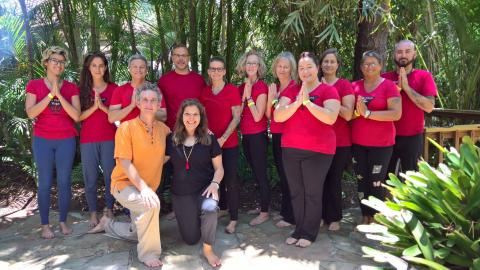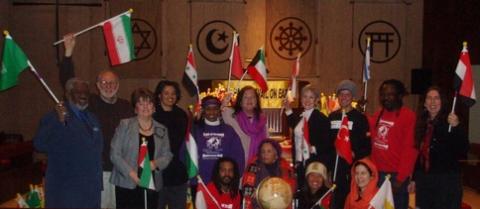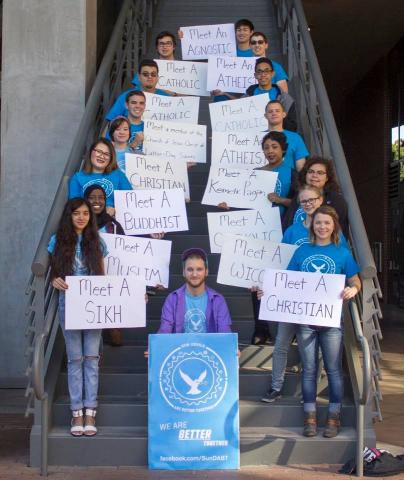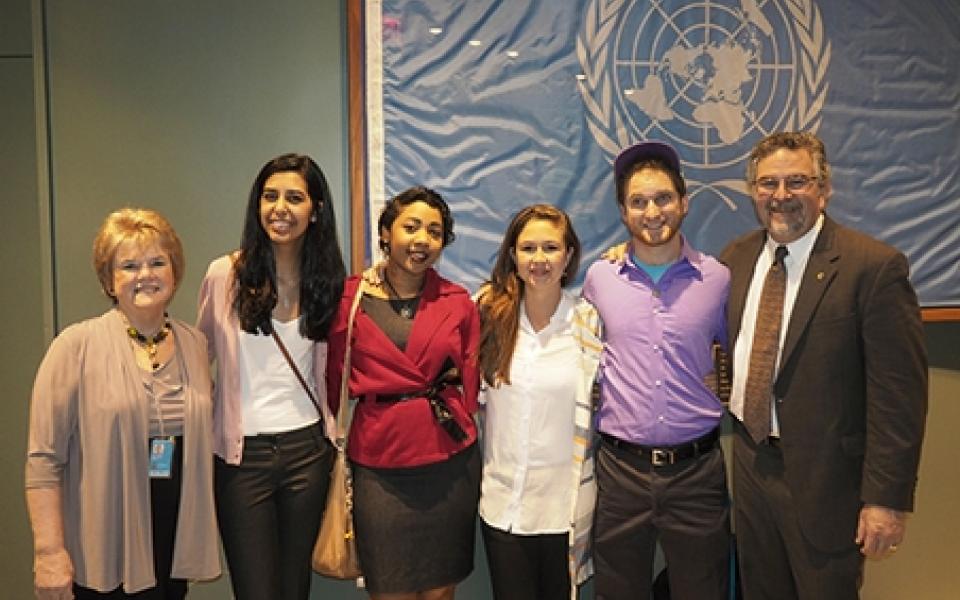
Victor Kazanjian with URI's Representative to the United Nations Monica Willard, Cooperation Circle members Jaya Reinhaulter (Kashi Foundation), Shayda Sales (SIVIC), and Aspyn Adams and Johnny Martin (SunDABT)
This week URI Global Staff, the URI at the United Nations Cooperation Circle (CC), and URI leaders from Kashi Foundation CC, Silicon Valley Interreligious Council (SiVIC) CC, and Sun Devils Are Better Together CC from Arizona State University gathered at the United Nations to celebrate World Interfaith Harmony Week and bring a message of hope to proceedings focused on countering religious extremism and implementing the Sustainable Development Goals around the world.
Once again, it was extraordinary to witness the work of URI’s United Nations representative in New York, Monica Willard. Monica’s years of networking and relationship building in the UN system have made her a force for promoting interfaith peacebuilding within the United Nations and building partnerships between UN Agencies and URI. All one has to do is mention Monica’s name and doors open—not because she wields power or influence like so many try to do at the UN, but because Monica is known as an authentic, kind and talented person who is trusted by everyone from the Secretary General and his wife, to ambassadors, to agency directors, to staff, secretaries and security guards. Monica embodies the true spirit of URI. People at the UN know the spirit of URI through her, and also through the spectacular members of the URI at the UN Cooperation Circle. Rev. Deborah Moldow, Rabbi Roger Ross, Amb. Leslie Gatan, Dr. Martha Gallahue, Swamini Sri Lailtambika Devi, Debbra Gill, Audrey Kitagawa, J.D., Zunaira Mubasher and Saidzhan Abdullaev model URI’s unique culture of being a circle of dedicated and connected equals working for peace, justice and healing for the Earth and all living beings. Monica and Deborah were key planners of Wednesday’s Global Interfaith Harmony Week event. Joining us and giving voice to key principles of peacebuilding and justice seeking were four URI leaders—Johnny Martin, Aspyn Adams, Shayda Sales and Jaya Reinhaulter—who let their presence be known especially on behalf of younger peer leadership and youth empowerment. They are fantastic peacebuilders!
It was an honor for me to represent URI on two panels during the sessions hosted by the Alliance of Civilizations, the Committee of Religious NGOs at the United Nations, and the UN Department of Public Affairs. One of my central messages in both sessions was to challenge people to reexamine their notions of “leadership” and see empowering the grassroots as a key to sustainable community and global peace and justice.
When people in these settings talk about interfaith peacebuilding, their focus is almost always on “religious leaders” whom they define as those persons ordained or selected for official leadership of religious communities. But this definition leaves so many “leaders” out of the picture, including women leaders, Indigenous leaders, younger peer leaders, and ordinary folks of all identities who provide leadership for the peacebuilding movement on the ground, and in communities, often behind the scenes and/or without recognition. In URI, official religious leaders are honored as wise partners in the work, but no more so than every other member of URI. In a URI context, as embedded in the URI Charter, we are all equals, each with our own unique gifts and perspectives; each bearing wisdom and perspective essential for the work of peacebuilding. This is one of the teachings that URI brings to the United Nations—that peace comes through partnership among people in all places in society and communities, and that sustainable peace comes only when people at the grassroots are included as equal partners in the process.
On Wednesday, the United Nations Alliance and Civilizations and the Committee of Religious NGOs at the United Nations hosted a major event attended by more than 500 people. Monica and Deborah did so much to make this happen. The theme of the event was Interfaith Harmony: Implementing the Transformative Agenda of the Sustainable Development Goals (SDGs). There was beautiful music and ritual celebrating of the Sustainable Development Goals and two panels focusing on partnerships between interfaith and faith-based organizations and the United Nations in engaging the SDGs.
My remarks highlighted the history of partnership between URI and other interfaith groups and the UN and how essential this partnership is to realizing the goals of peace and justice that we all seek. The second panel event on Thursday, Promoting Peace and Reconciliation to Counter Violent Extremism, was hosted by the UN Department of Public Information. It was attended in person and through UN Web TV by many people within and outside of the UN system who were involved in or interested in this important topic. During this panel, I was able to delve more deeply into URI’s work in the world explain in about URI’s dual strategy of interfaith bridgebuilding and community actions to address the causes of conflict that lead to physical violence and structural violence. You can read the full text of my remarks on "Interfaith Harmony: Implementing the Transformative Agenda of the Sustainable Development Goals" and "Promoting Peace and Reconciliation to Counter Violent Extremism" on the URI website.
I am so inspired by the work of URI’s UN Staff Team, including Monica in New York, Mussie Hailu in Nairobi and Patrick Nickisch in Geneva. This is an aspect of URI’s work that often is less visible because our focus is (rightly) on Cooperation Circles as the heart and soul of URI. But the United Nations is a valuable resource for our CCs and for the overall work of URI in terms of networking, peacebuilding resources, and funding for CC work, and URI has been a valuable resource for the United Nations in helping that body to understand the importance of interfaith peacebuilding to the UN’s mission. We see this in action with URI CC participation in events such as World Interfaith Harmony Week and the International Day of Peace, both of which URI helped to start and in which URI continues to provide leadership.
In the year ahead, Monica, Mussie, Patrick, Sally and I, working with regional and CC leaders who already work closely with the United Nations agencies and regional offices, will be producing a guide for URI that helps all CCs and regional offices to better understand the United Nations as a resource for their work. In addition, we will continue to build bridges with UN partners and create opportunities for URI grassroots voices to be heard in international forums related to building enduring daily interfaith cooperation, ending religiously motivated violence and creating cultures of peace, justice and healing for the Earth and all living beings.
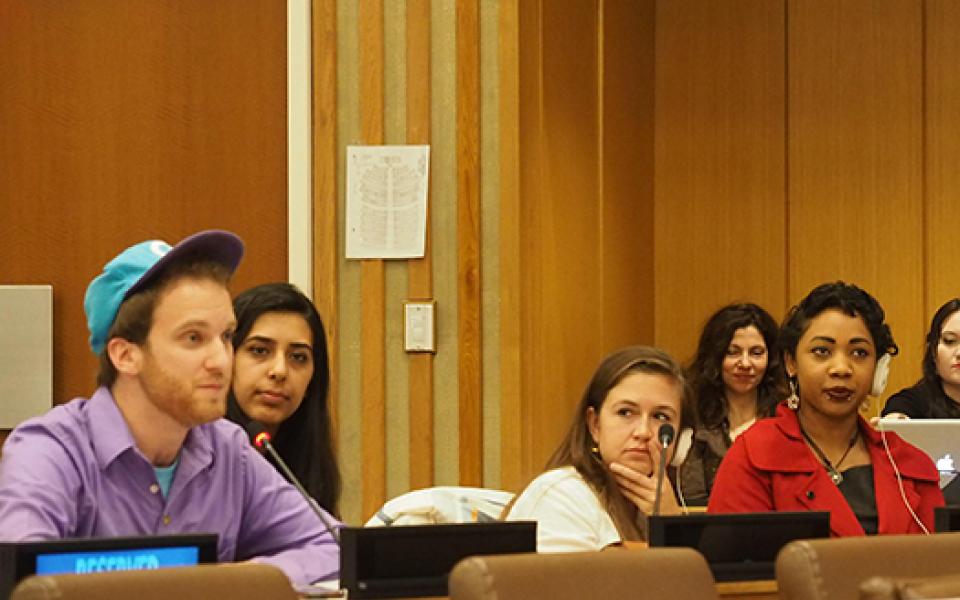
Johnny Martin and Aspyn Adams of Sun Devils are Better Together CC
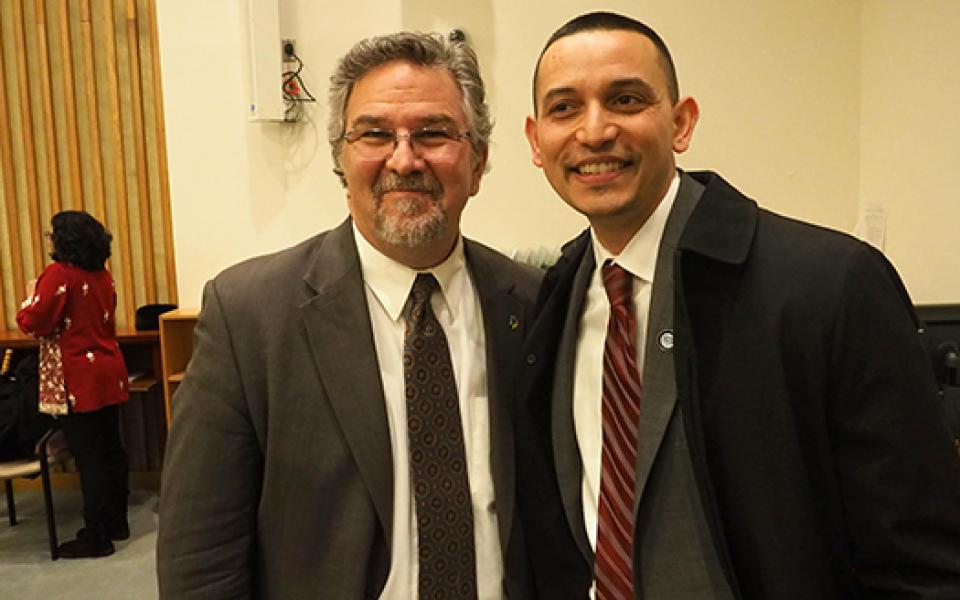
URI Executive Director Victor Kazanjian with Reverend Adam Russell Taylor, Lead, Faith-based Initiatives at the World Bank Group
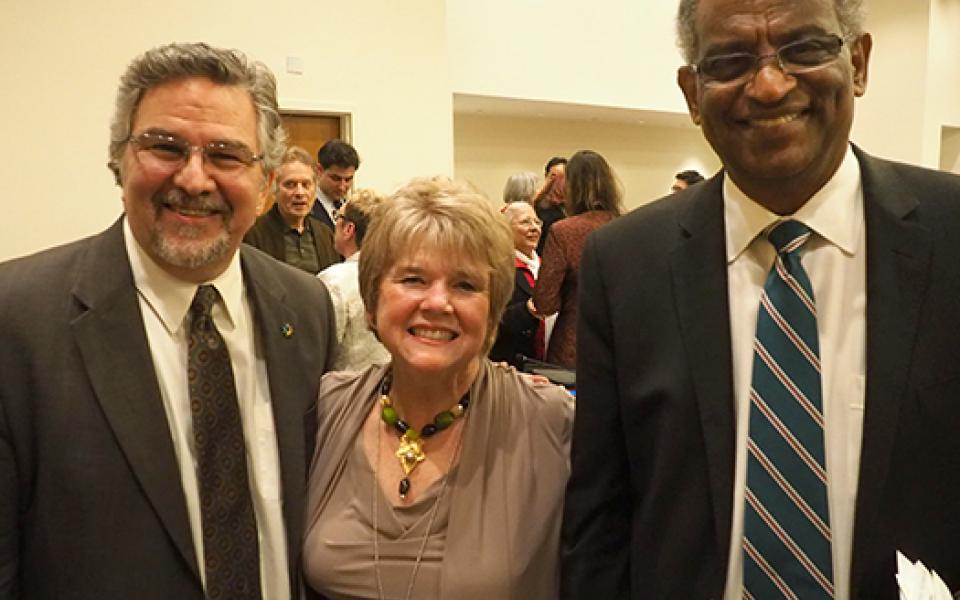
Victor Kazanjian and Monica Willard with Taj Hamad, Secretary General, Universal Peace Federation

Jaya Reinhaulter (Kashi Foundation), Shayda Sales (SIVIC), and Aspyn Adams and Johnny Martin (SunDABT)
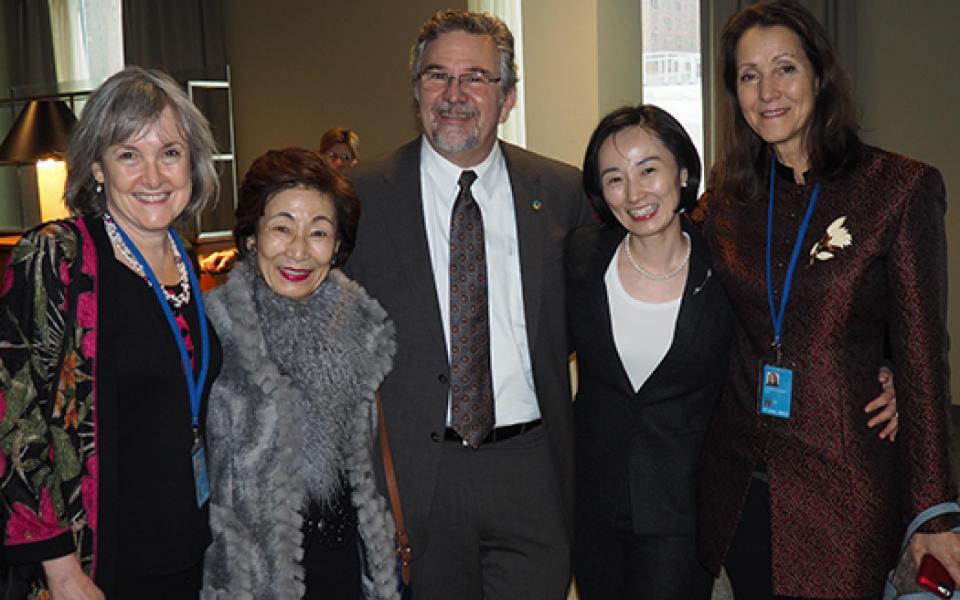
Deborah Moldow, World Peace Prayer Society Representative to the United Nations; Masani Saionji, Chairperson of The World Peace Prayer Society; URI Executive Director Victor Kazanjian, Maki Saionji Kawamura, Managing Director of Goi Peace Foundation; Fumi Johns Stewart, Executive Director of the World Peace Prayer Society
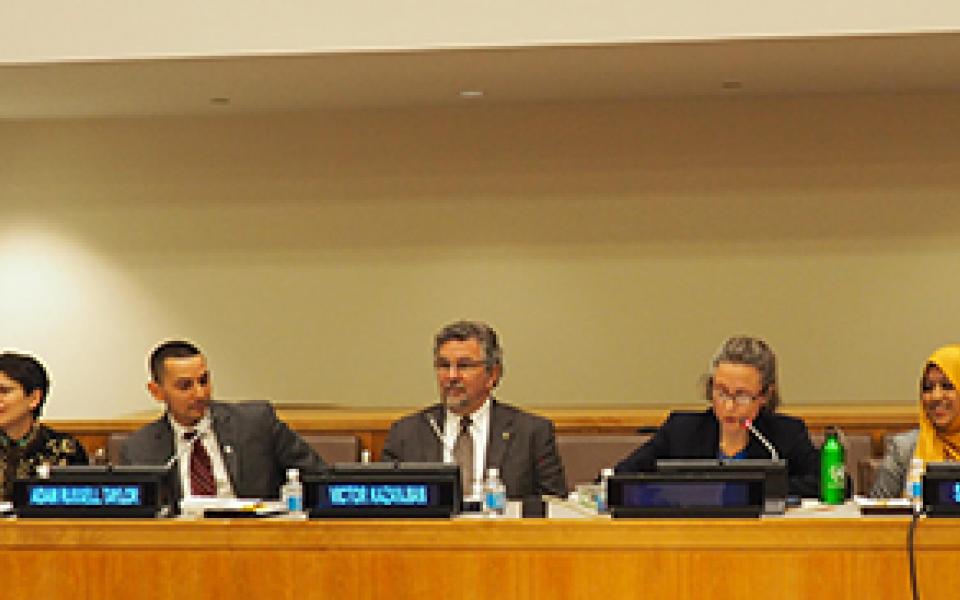
Ambassador Ufuk Gokcen, Observer of the Organization of the Islamic Cooperation; Dr. Azza Karam, Senior Advisor on Culture at the United Nations Population Fund (UNFPA), Reverend Adam Russell Taylor, Lead, Faith-based Initiatives at the World Bank Group; The Rev. Victor H. Kazanjian, Jr., URI Executive Director; Sister Áine O'Connor, Institute of the Sisters of Mercy of the Americas; Ms. Sadyia Khalique, Director of Operations at The Council on American-Islamic Relations of New York (CAIR-NY); Swami Parameshananda, Bharat Sevashram Sangha

